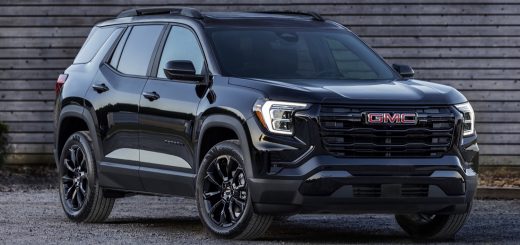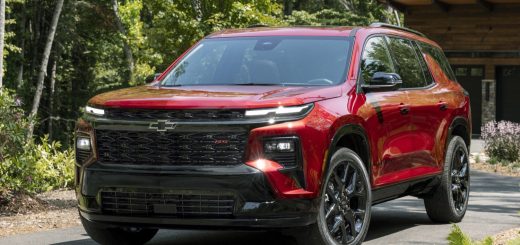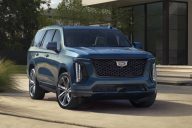The U.S. Treasury has announced today that the government no longer owns any GM stock, and has sold all remaining shares before the end of the year, as promised. “Government Motors,” is no longer applicable.
In total, Uncle Sam lost about $10.5 billion bailing out GM, though has profited on bailouts, such as TARP, by an estimated $10 billion overall. A recent study also revealed that keeping GM alive has saved an estimated 1.2 million jobs that would have otherwise dissolved.
Meanwhile, GM CEO Dan Akerson has stated the following:
“The U.S. Treasury’s ownership exit closes just one chapter in GM’s ongoing turnaround story. We will always be grateful for the second chance extended to us and we are doing our best to make the most of it. Today is not dramatically different from the hundreds of preceding days during which we have worked to make GM a company our country can be proud of again.
“Continued investments, innovation, and job creation are just some of the “returns” of a healthy GM and domestic auto industry. Our work continues uninterrupted, and we will keep our sights squarely on our customers and transforming the way we do business.”
GM stock rose 2% to close at $40.90 today.















Comments
Finally I’m so glad this is over and GM can just focus on building the best cars and trucks for their customers!
Unfortunately knuckle heads will continue to bring this up for years to come, at least people are referring to what happen in real honest terms meaning, the government lost 10 billion on it’s investment!
GM did not short anyone, not the government, not the tax payers! GM entered into a agreement with the government, GM met it’s requirement of the deal.
The government new the risk before they agreed to the deal, knowing they might not be able to get back all the money based on the current stock price!
You are correct and I agree. In fact, I wish to add a little piece of trivial I came across:
The Government was well aware of what a bailout would cost. In fact, they originally planned on a loss of nearly $20 Billion when this plan was announced. So the thing to keep in mind isn’t that they lost $10 Billion, but had planned on losing twice that.
Great news… now they can concentrate fully on making first class vehicles without Uncle Sam looking over their shoulder.
Monday is always the worst day of the week. Except for this one, government motors is no more, so this makes my Monday a lot better
While “government motors” is gone, no doubt the name will remain.
True, but at least now the government doesn’t own any of GM anymore.
Good, Obama can’t mess with my favorite American car brand anymore than he already did. Hopefully we start seeing more and more new/refreshed models coming out of GM! I personally think that Chevrolet has one of the newest most refreshed lineups of any other comparable brand in The U.S.! Now if only we could force Toyota, Hyundai and Nissan to file for bankruptcy. . . Who’s with me? Hahaha
This announcement will change no product plants. Pontiac won’t come back, and the world will keep on spinning.
Thanks Captain Obvious. .
My point is that Obama had nothing to do with product, it was all a very hands-off free affair in terms of product, despite everything else. The word that Pontiac was killed because of the feds wasn’t as much of an arm twisting decision as it was common sense — the brand made no money. And when it attempted to, you’re left with diluted products like the Torrent.
I agree with what you are saying, although I don’t agree that GM/Pontiac “attempted” to make money. They re-badged and copied, not try and design their own products (Besides the G6 and G8). Pontiac would make money if done right. Now is not the right time to bring back Pontiac, as GM has some serious work to do with their current lineup. .
Hey I have a question for you though: TFL Car did a 0-60 test in a 2014 Buick Regal AWD Turbo and it only got 8.5 seconds (Minus one for a mile above the sea level). Why is it so slow? The 2.5L can go 0-60 in about 7.8 seconds in the Malibu! Is it because of the added weight of having AWD?
NO!!! PONTIAC DOESNT COME BACK AND THE WORLD BLOWS THE HECK UP! Pontiac was the best American car brand left. ALL AMERICAN. not lile chevy to Europe and caddy to europe and buick/gmc to China. Pontiac was all american. WE NEED PONTIAC! especially the g8. Amd you will blow up because you saod the world will keep spinning AND THAT PONTIAC WON’T COME BACK! …..because ot will…….Just wait and see…..
While it’s good news, I am dissapointed some of the shares were not purchased by GM.
@EvanR:
You are missing the truth here. It was George Bush who gave GM the bailout, not Obama.
Yes indeed Bush gave GM their first bailout and started to plan the second one. But oBAMA finalized the second one and made GM get rid of Pontiac. You missed the truth, and a big part of it. . .
The bailout wasn’t a success like the government would like you to believe.
The assumptions made about the millions of lost jobs if they hadn’t been bailed out are utterly overstated and based on dreamed up worst-case scenarios, it almost smells of propaganda.
If GM and Chrysler had just gone into regular chapter 11 and the treasury had guaranteed the loans for them to keep operating during the bankruptcy, they could have reorganized and restructured without government intervention. They would be in the same position as they are now, but taxpayers wouldn’t have lost out big time. Source: http://left-lane.com/gm-bailout-failure/
Bart, I don’t disagree that the affects may be overstated, but your article also presents some pretty outlandish assumptions as well.
“It almost smells of propaganda.”… says the guy who posts a link to his own article full of the same over simplification and rose colored glasses logic.
3 quotes from your article.
“The projections of job losses were based on the assumption that all automobile manufacturers and suppliers nationwide would be lost.” I don’t recall that they said ALL suppliers would be lost. The vast majority would take a big hit, but not all would be lost.
“If the treasury department had just guaranteed these loans instead of stepping in and taking over control, those $ 10 billion would not have come at a loss to taxpayers.” That’s quite a prediction of an alternate universe scenario. Can you prove it? What about the economic effects, lost wages, and lost tax revenue from those who would have been hit? How would those taxpayers who lost their jobs due to the shrinkage of the industry? How would the already weakened economy handle that? What if GM had to default on those loans without the government intervention. How would the guaranteed loan be paid back to the tax payers? Your article doesn’t even address those things.
“But with a $ 50 billion cash infusion, wiped out debts, inefficiencies cut away and political obstacles steamrolled, all during a rapid recovery in U.S. auto sales, only the most incompetent companies could fail to make a profit.” Where was this so called “rapid recovery” in US auto sales? I didn’t see it.
Pot calling the kettle black??
@ Brian:
(1) CAR research, who stated that 3 million jobs would be lost, based those conclusions on this scenario: (quote) that not only does domestic production by the Detroit companies fall to zero in the first year, but that domestic production (in the U.S.) by the international producers also falls to zero. (unquote)
Source: http://www.cargroup.org/assets/files/detroit_three_contraction_impact.pdf
(2) In my article I am talking about the government guaranteeing a loan from banks to pay for the restructuring during the chapter 11, so no money out of the pocket, unless GM fails to repay that loan. This seems unlikely considering GM is currently sitting on a $ 26 million cash pile.
(3) You don’t call this a rapid recovery?
2009: 10.4 million
2010: 11.55 million
2011: 12.7 million
2012: 14.4 million
2013: set to pass 15.5 million units sold
In 2009 everybody in the industry was saying: “we’ll never get back to 15 million units again!” But 4 years later, it’s reality, and 2014 looks even brighter.
The no notion that bankruptcy would have been better, is preposterous. No one would have purchased a GM product. With the government loan, potential buyers were assured that GM was backed up. Not to mention the ripple effect of suppliers declaring bankruptcy, the ripple effect would have stopped all auto production in its tracks.
What’s the difference between banks lending “government money”, or direct loans from the government? Banks were on their knees at that time. With the government lending money to the banks, who in turn handed the money to GM and Chrysler? … It’s stupid.
What business’s realized long ago, is that the United States is the biggest bank in the world. Just ask Mitt Romney. He made a fortune using government money. Even in the noon profit world, Romney gladly took 2 billion taxpayer dollars to save the winter games in Mormon Mecca… It was never paid back.
You libertarians are a danger to any economic system.
Bart,
I still respectfully disagree with your argument.
1) When you used the word “lost” in your article, it implied to me that you meant gone, bankrupt, or closed. According to the report: “However, we do not assume that the international automakers in the U.S. lay off their employees at any time. We also assume that by the third year, the international producers are back at full operational capacity and have expanded to at least take up some of the lost Detroit Three production (20 percent of former Detroit output).” Also, it is worth noting that this Scenario 1 that you reference was the worst case scenario of the two in the report. The 1.2 million jobs mentioned in this gmauthority.com article refer to the more realistic 2nd Scenario you chose not to focus on.
2) If the US offered a guaranteed loan, how do you know the banks would have taken it? How do you know that the government would have still stepped in? Oh wait. The major premise of your article is that it was wrong for the US to step in. So you’re assuming GM would have the same profitability if the government didn’t step in and exert control. Again, it seems quite an assumption to think that.
3) The recovery happened after the restructuring and only because of the restructuring – NOT during it. You’re article implies that all they had to do was ride the economic wave to profitability, but there would not have been the same steadily building wave if the bailout didn’t happen. And still I don’t consider 5 years rapid. The bulk of the recovery happened during 2012 – after the release of their newer products caught hold in the market.
Obama had nothing to do with getting rid of Pontiac!